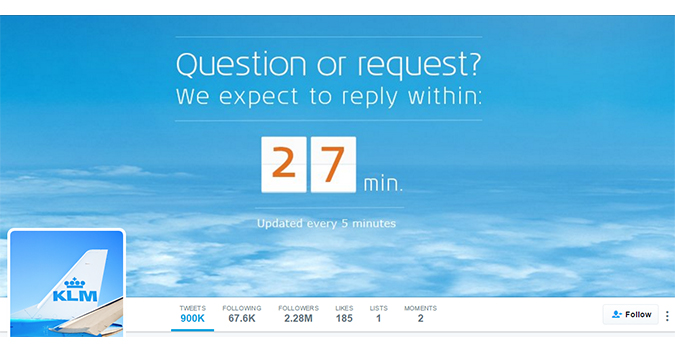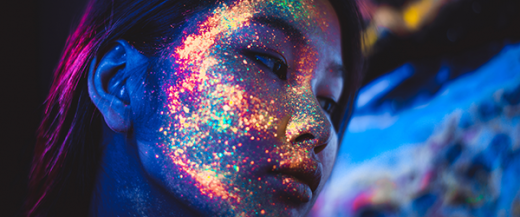Sipping sun-glistening cocktails between lazy palms in Mallorca. Barging slowly past picturesque villages on a spring day in Holland. Holiday moments are timeless. And the travel sector has always sold them neatly bundled, capturing the imagination of escape-seeking consumers.
As digital technology revolutionises how people plan and book holidays, the travel industry has evolved to capture the power of the moment more than ever before.
Key information about flights, hotels, and pre-packaged holidays, which were previously the domain of travel agents, are now available at the click of a button.
 Digital technology opens up a whole new catalogue of touchpoints for travel brands to tap into. Planning a holiday now requires navigating the complex online world of flight price fluctuations, personalised accommodation and peer-reviewed restaurants. Brands can now influence people’s decision-making process at many moments in time, if they can understand how to seize the power of the moment.
Digital technology opens up a whole new catalogue of touchpoints for travel brands to tap into. Planning a holiday now requires navigating the complex online world of flight price fluctuations, personalised accommodation and peer-reviewed restaurants. Brands can now influence people’s decision-making process at many moments in time, if they can understand how to seize the power of the moment.
What does the new world of travel mean for brands?
Travelling is already teeming with special life moments: from planning a special trip with a loved one, to the breath-taking vista at the end of a long hike, to the luxury chocolate on your hotel room pillow.
Savvy travel brands understand that not all these moments are equal and  unlocking the moments that matter most during the customer journey can create new sales and strengthen brand equity. Companies that have evolved to take this people-centric approach are thriving in a complicated new travel world.
unlocking the moments that matter most during the customer journey can create new sales and strengthen brand equity. Companies that have evolved to take this people-centric approach are thriving in a complicated new travel world.
What can we learn from those doing it right?
Keep it personal
Some form of human interaction can often be important during holiday planning and can make a crucial difference at the point of purchase.  A challenge for brands is pinpointing exactly when and how people want personal guidance and advice. The more important the holiday (that big trip of the year), the more critical human touch points across different platforms become.
A challenge for brands is pinpointing exactly when and how people want personal guidance and advice. The more important the holiday (that big trip of the year), the more critical human touch points across different platforms become.
KLM Airlines successfully attuned their social strategy to support people with human intervention and drive a competitive advantage:
Travel dominates the online shopping world
Our Connected Life study shows that flights are the most bought category online: 78% of us have done it across the globe. Accordingly, travel is a much loved and discussed topic on online, making social a huge opportunity for brands to helpfully join conversations already happening near the point of purchase.
KLM cleverly positioned their Twitter account as a “hub” on their CRM model and boldly channelled a number of personal services through the site, making them easier to access quickly than most travel brands.

KLM customers can link their flight booking to their social profiles, allowing KLM to easily reference a traveller’s flight if they tweet a question or problem. The airline’s page even gives an estimated resolution time every 5 minutes.
Aboard the plane, flight attendants are armed with iPads that display enquiries from passengers. Being able to anticipate a passenger’s needs in advance and respond to it immediately eases a moment of tension and turns it into a positive experience. Because of this personalised approach KLM passengers are more likely to be brand ambassadors.
But….
It’s important to caution that especially in Western markets, brands that get too personal can be seen as intrusive. KLM strikes the right balance because it has anticipated moments in the flight-booking journey where customers might need a helpful hand, not an annoying prod.
The KLM approach works because they’ve understood exactly when and how their customers need personal touches and made use of the right tools (Twitter and CRM) to offer support the moment it’s needed.
Become a part of the whole holiday experience
Having the power to plan trips in the digital world means people are now opting to use multiple brands and services instead of just one when they travel. Forward-thinking companies are starting to expand their services so that they can anticipate the steps along a traveller’s path and offer something that might be entirely different but complementary to their core ‘product’.
This is why AirBnB created, ‘AirBnB Experiences’, telling users to “seek out your passion.” Usually focused only on brokering accommodation between homeowners and vacationers, AirBnB identified an important moment – the question of what to do after ‘check-in’ – and met it with an experience-led offer.
In a similar vein, Headwater has tweaked their core holiday package to offer help and guidance at key moments. A self-guided vineyard cycling tour in France wraps up several adventurous experiences under one brand, leaving their customers feeling both free and taken care of. By smartly positioning themselves as a behind the scenes ‘concierge,’ Headwater is right there with their customers along every moment of their holiday.
Embrace the Tripadvisor generation
It goes without saying that social media and Tripadvisor have dramatically levelled the playing field when it comes to booking experiences.
Seeking trusted advice which was previously limited to friends and family is now available instantly from peers around the world. We’ve become savvy enough to base a good portion of our travel choices on people we trust online, even if they are strangers. Many of us also use social media whilst vacationing to humbly brag about the sand between our toes.

With research from TripAdvisor showing a direct correlation between rating scores and occupancy, many holiday brands are investing more in marketing and social media to give visitors easy ways to buy products at the point when customers are reading reviews or surfing on Facebook.
Capitalising on the social trend, Starwood Hotels and Resorts leveraged Facebook to attract social media savvy customers by offering up special deals on an Exclusives page, a campaign run solely on their Facebook profile. The campaign generated over US$2 million in sales.
An industry that lives for adventure….
Travel brands must embrace a new world that’s fuelled by resourceful and adventure-hungry people.
Brands that meet people at instrumental moments during vacation planning, that delight and surprise them on their way, and offer the richest experiences during a trip will come out powerfully above those that don’t.









